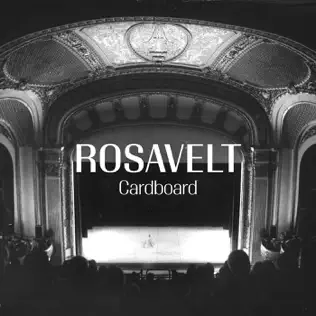This is a Big Deal. Where Do We Begin?
Last week I walked into the kitchen and the television had switched over from the noon news to a soap opera where a well-appointed couple was standing in a well-appointed recording studio, presumably in Los Angeles, California. The pair shared a pretty serious look on their faces. The woman furrowed her brow, clearly deflated: "There's a problem with the song," she fumed before letting a big dramatic pause linger as long as network television will allow. "And *I* wrote it!" she continued, punctuating the "I" purposefully for her now somewhat bewildered companion who hadn't yet realized – leather jacket notwithstanding – that he was in the company of a songwriter in the first place.
So it goes with songwriting. You can be in the near-field vicinity of a songwriter at the bank or on a bus – or even standing right next to one at a fancy LA studio – and unless you hear 'em humming, you'd hardly ever know. Rolly Salley, originally of Belvidere, Illinois, for example, wrote "Killing the Blues" which, forever, I simply assumed was a John Prine song and which the rest of the world now thinks was written by Alison Krauss and the lead singer from Led Zeppelin. At this very moment, though, the actual songwriter of that song – a song as impactful and important to me as Kristofferson's "Sunday Morning Coming Down" or Zevon's "Desperados Under the Eaves" – might actually be standing at an ATM machine or sitting on a bus, unlike, say, Robert Plant.
My own experience is that I wrote about ten dozen songs in the span of ten years from 1990 to 2000, then about a half-dozen in the 23 years since. I committed a handful of these to tape, but the rest eventually flew out the window after a few plays or dropped out of my pockets on the way from Ohio to Chicago. That's the first part of the story. The second part is that these same songs still resurface occasionally – as time capsules do – sending me backwards to separate decades out of days and recalibrate my sense of time.
Most recently, my pals Chris Allen and Kevin Grasha of Rosavelt released an astonishing version of a song I first recorded in Roger Klug's living room on Marburg Avenue in Cincinnati almost thirty years ago. Notably, their version of "Cardboard" – now available on iTunes/Apple Music, Spotify, and Tidal – includes the high honor of Don Dixon production (with a real-life drum machine) amid the unbelievably humbling recognition of songwriters who long ago mastered their craft so they could easily outrun the cover tunes.
– Jon Roketenetz
Jon writes on music, business, and creativity at Unclumsy.com
Jon writes on music, business, and creativity at Unclumsy.com
Postscript. Rolly Salley is a Grammy-winning songwriter and plays bass in Chris Isaak's band Silvertone. According to Google, people also ask: "Is Rowland Salley married?"
